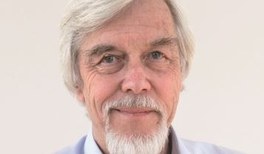PRESS RELEASE
Deutsche Physikalische Gesellschaft
DPG-President Rolf Heuer about the exit of Britain from the EU
Bad Honnef, Germany, 24. June 2016 – The German Physical Society (DPG) very much regrets the British electorate’s vote to leave the European Union. With that decision, Europe risks losing a strong and valuable research partner at a time when cross-border collaboration in science is needed more than ever. The solutions to today’s demanding global challenges require more internationally oriented science, not less. Rather than going our separate ways, we should be strengthening our international scientific ties.
Picture: Bild: DPG/Chiussi 2016
Nevertheless, in any democracy, the electorate’s voice must be heard and respected. Regardless of yesterday’s vote, we at the DPG will work to further strengthen and develop the very positive relationship we enjoy with the Institute of Physics (IOP). This includes working in the full European context under the umbrella of the European Physical Society (EPS).
The withdrawal of Britain from the EU will have far-reaching consequences for UK science and universities, particularly because access to EU funding programs will become significantly more difficult, if not impossible, for UK scientists, and their mobility within Europe will be compromised. “Nevertheless, I am convinced that British researchers will continue to show their strong commitment to European science, and endeavour to contribute at the high level to which we have become accustomed”, says Heuer.
To ensure this can happen, the DPG calls on the Government of the United Kingdom and on EU leaders to make academic exchanges across borders as smooth as possible, maintaining the mobility of UK researchers. This is not only good for the UK. It is good for Europe and it is good for the world. Science should not have borders.
⇒ PDF (English)
⇒ PDF (German)
The German Physical Society (Deutsche Physikalische Gesellschaft e. V.; DPG), which was founded way back in 1845, is the oldest national and, with more than 62,000 members, also the largest physical society in the world. As a non-profit-making organisation it pursues no economic interests. The DPG promotes the transfer of knowledge within the scientific community through conferences, events and publications, and aims to open a window to physics for the curious. Its special focuses are on encouraging junior scientists and promoting equal opportunities. The DPG’s head office is at Bad Honnef am Rhein. Its representative office in the capital is the Magnus-Haus Berlin. Website: www.dpg-physik.de.
